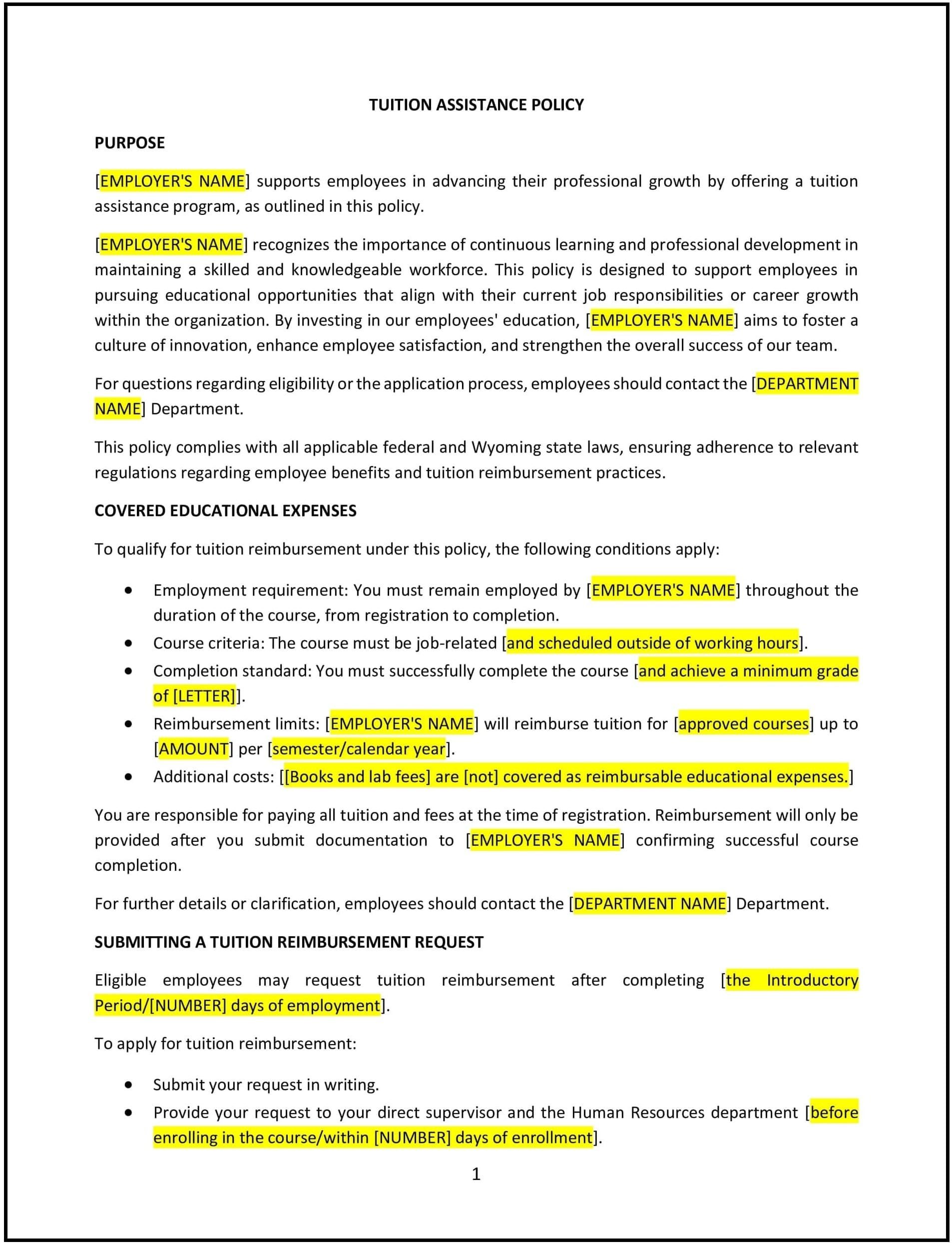Got contracts to review? While you're here for policies, let Cobrief make contract review effortless—start your free review now.

Customize this template for free
Tuition assistance policy (Wyoming)
In Wyoming, a tuition assistance policy provides guidelines for supporting employees in pursuing educational opportunities that align with their professional development and the organization’s goals. This policy outlines eligibility criteria, covered expenses, and application procedures, fostering a culture of continuous learning and growth.
This policy ensures consistency and transparency while supporting compliance with tax regulations and organizational priorities.
How to use this tuition assistance policy (Wyoming)
- Define eligible programs: Specify the types of educational programs eligible for assistance, such as degree programs, certifications, or professional development courses related to job performance.
- Outline financial support: Detail the extent of financial assistance provided, including covered expenses like tuition, fees, and required materials, as well as reimbursement limits.
- Establish eligibility requirements: Include criteria for employee eligibility, such as tenure, performance standards, and relevance of the program to their role.
- Provide application procedures: Include steps for employees to apply for tuition assistance, such as submitting a request form, proof of enrollment, and program details.
- Support compliance: Align the policy with Wyoming labor laws and IRS guidelines for educational benefits to ensure legal adherence.
Benefits of using a tuition assistance policy (Wyoming)
A tuition assistance policy provides several advantages for Wyoming businesses:
- Enhances employee skills: Encourages professional growth by supporting employees in gaining new knowledge and competencies.
- Improves retention: Demonstrates a commitment to employee development, fostering loyalty and reducing turnover.
- Supports compliance: Aligns with tax regulations and legal requirements, minimizing risks.
- Boosts morale: Shows investment in employees’ career aspirations, increasing job satisfaction and engagement.
- Adapts to local needs: Reflects Wyoming’s workforce dynamics and educational priorities.
Tips for using a tuition assistance policy (Wyoming)
- Communicate clearly: Share the policy with employees during onboarding and ensure it is accessible for future reference.
- Encourage planning: Work with employees to identify educational opportunities that align with their career goals and organizational needs.
- Set performance expectations: Include requirements for maintaining academic standards, such as a minimum grade, to qualify for reimbursement.
- Track program outcomes: Monitor the impact of tuition assistance on employee performance and career progression.
- Review periodically: Update the policy to reflect changes in educational costs, tax regulations, or company goals.